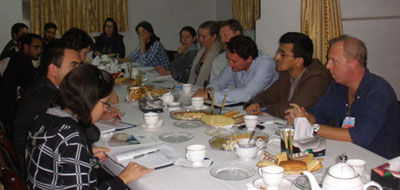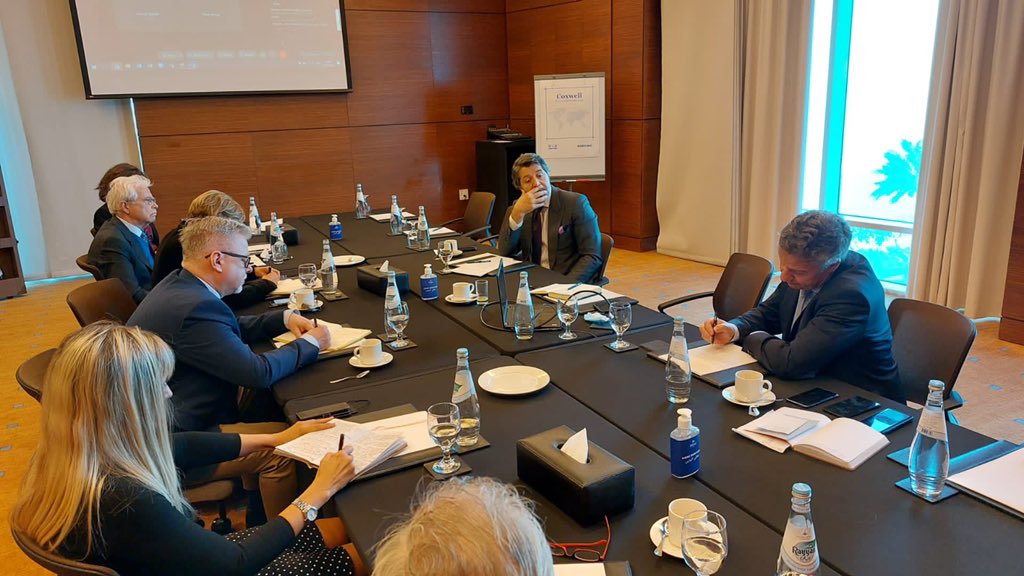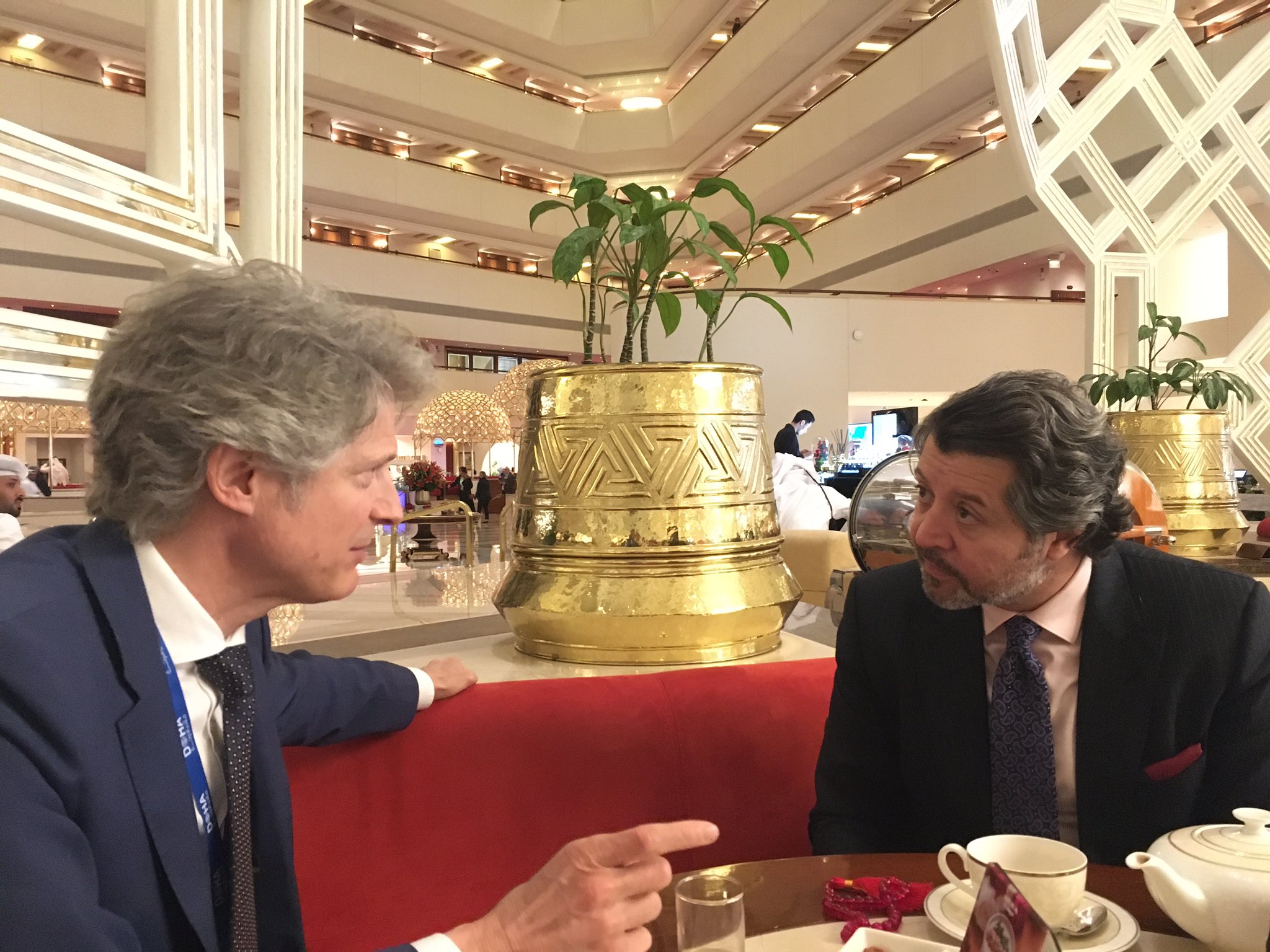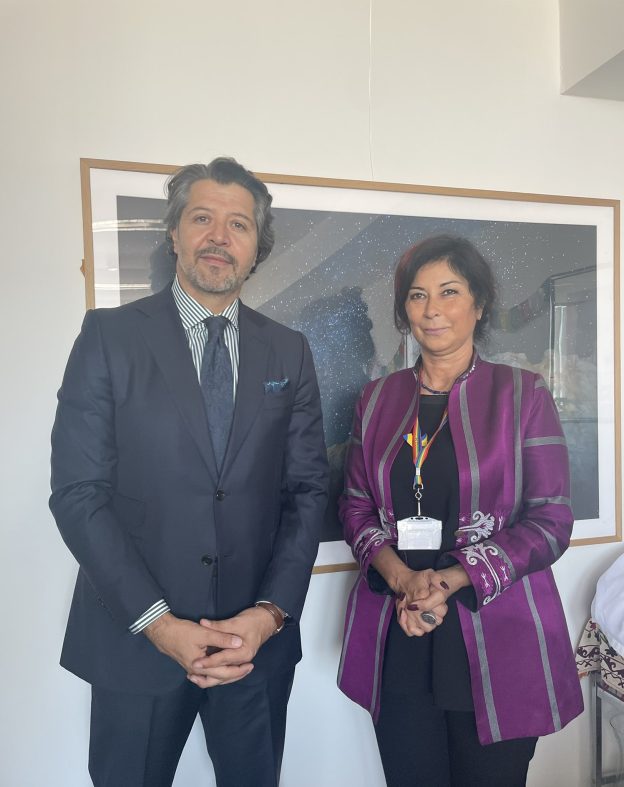Oct 16, 2010
Centre for Conflict and Peace Studies (CAPS) hosted the Transatlantic Opinion Leaders to Afghanistan (TOLA) at CAPS on 12th October 2010. The discussion roundtable was held between CAPS research legal department and the TOLA delegation which included scholars and experts representing various prestigious think-tanks, research centers and government institutes in Europe. The event commenced with Mr. Hekmat Karzai’s (Director of CAPS) opening remarks followed by a brief assessment of CAPS perspectives and opinions on the reconciliation and reintegration process and the five fundamental pre-requisites required for this initiative to succeed.
Mr. Karzai’s remarks started with a reiteration of former U.S. President, John F. Kennedy’s quote ‘Today’s Problems are the result of yesterday’s solutions.” which resonates closely with the current political and security situation of the country. Mr. Karzai, before proceeding to evaluate the peace process, stressed that it was becoming more and more evident that there were no military solutions to solving the Afghan conflict; rather a political solution was needed to address the current situation. Nonetheless, Mr. Karzai highlighted that this process would only yield positive results if Afghanistan’s regional neighbors, namely Iran to the West and Pakistan to the East, became constructive partners in combating terrorism.
Mr. Karzai began his assessment of the reconciliation and reintegration initiative by detailing two fundamental pillars that he believes will facilitate this initiative. The two pillars include, the reconciliation process which will be used at the strategic and political level and the reintegration process will take place at the operational and tactical level. However, Mr. Karzai stated that there were five pre-requisites in ensuring the successful implementation of these two pillars and they include—the peace process must be Afghan-led; Pakistan should become a strategic asset in combating terrorism; no conditions should be set prior to negotiations with insurgents; reconciliation must take precedence over reintegration; and the unrelenting support of regional players is much needed.
Following Mr. Karzai’s remarks, the floor was open for a round of discussions. Questions from the delegation expressed hesitations over the mechanisms through which the dialogue and reconciliation process was going to be pursued. Questions ranged from concerns over the disjunction between the U.S. military and political strategy in Afghanistan, how to reintegrate the disenfranchised youth that form the insurgency and what factors, and whether ground realities were reflected in the mandate of the new High Peace Council.
In conclusion, Mr. Karzai wrapped up the discussions by emphasizing that without first building trust between the insurgency and the Afghan government the peace process would not prove successful. Hence, the main point highlighted in the session was that certain trust-building measures needed to be implemented in the immediate future in order to pave the road for reconciliation and reintegration.
Participants in the meeting with TOLA included:
Mr. Hekmat Karzai (Director of CAPS), Ms. Mariam Safi (Research Fellow), Mr. Maisam Wahidi (Research Analyst), Mukhtar Niazi (Research Analyst), Mr. Abdul Qayomi (Defence Lawyer & Director of Legal Department), Mr. Khairullah Fazli (Defence Attorney), Mr. Yahaya Ibrahimi (Defence Attorney).






Leave A Comment